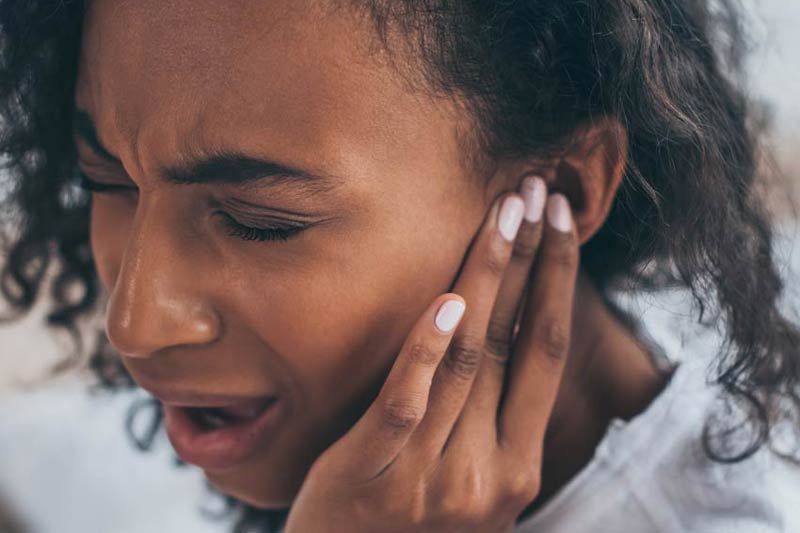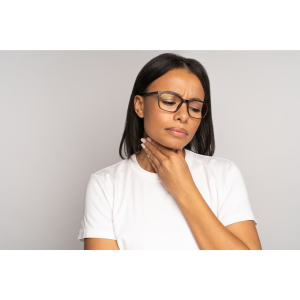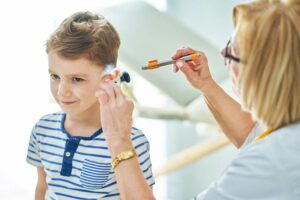
Ear pressure refers to a feeling of fullness in the ears. This sensation is the result of the Eustachian tubes – which help drain fluids from the middle ear as well as regulate air pressure – malfunction or become blocked. Ear pressure is rarely the sign of anything serious, but it can still be unpleasant to deal with. Below we outline common causes of ear pressure and how to find relief.
What Causes Ear Pressure?
Change in Altitude
Rapid changes in altitude can cause ear pressure. This is because the difference in pressure between the middle ear and the environment creates a vacuum that stretches the eardrum, leading to ear pressure as well as the buildup of fluid in the ear, dizziness, and temporary hearing loss.
Next time you fly, visit the mountains, or even feel pressure going up the elevator in a high rise and you’re feeling pressure in the ears, try:
- Yawning
- Swallowing
- Pinching the nose and exhaling gently
- Chewing gum
- Sucking on a hard candy
- Using a decongestant
Sinus Congestion
The sinuses are air-filled pockets located behind the cheeks and forehead. Their job is to produce mucus, which moisturizes the nasal passages and traps germs that get inhaled.
Sinus congestion refers to mucus becoming trapped in the sinuses. In addition to ear pressure, sinus congestion can cause stuffy nose, postnasal drip, facial pain, headache and reduced sense of smell.
To find relief from the symptoms of sinus congestion, you can:
- Inhale steam
- Use a saline rinse
- Try a decongestant nasal spray
- Apply topical nasal corticosteroids
- Use a warm compress
- Take medication for allergies
- Visit your ENT if you think you may have a sinus infection
Earwax Buildup
Earwax performs the important functions of keeping your ear canals lubricated to prevent them from getting itchy and trapping germs and debris that may try to enter the ear. While earwax typically works itself out of the ears on its own, sometimes it can build up and become impacted.
Signs of impacted earwax include fullness in the ear, muffled hearing, tinnitus (ringing in the ears), itchiness, discharge, odor, pain and infection.
If you have earwax buildup, do not try to remove it with a cotton swab, hair pin or any other object. Instead, place a few drops of baby oil or over-the-counter eardrops in the ear canals to soften the wax. Then you can rinse the ears in the shower or using a bulb syringe.
If this doesn’t work, schedule an appointment with our team Texas ENT & Allergy.




